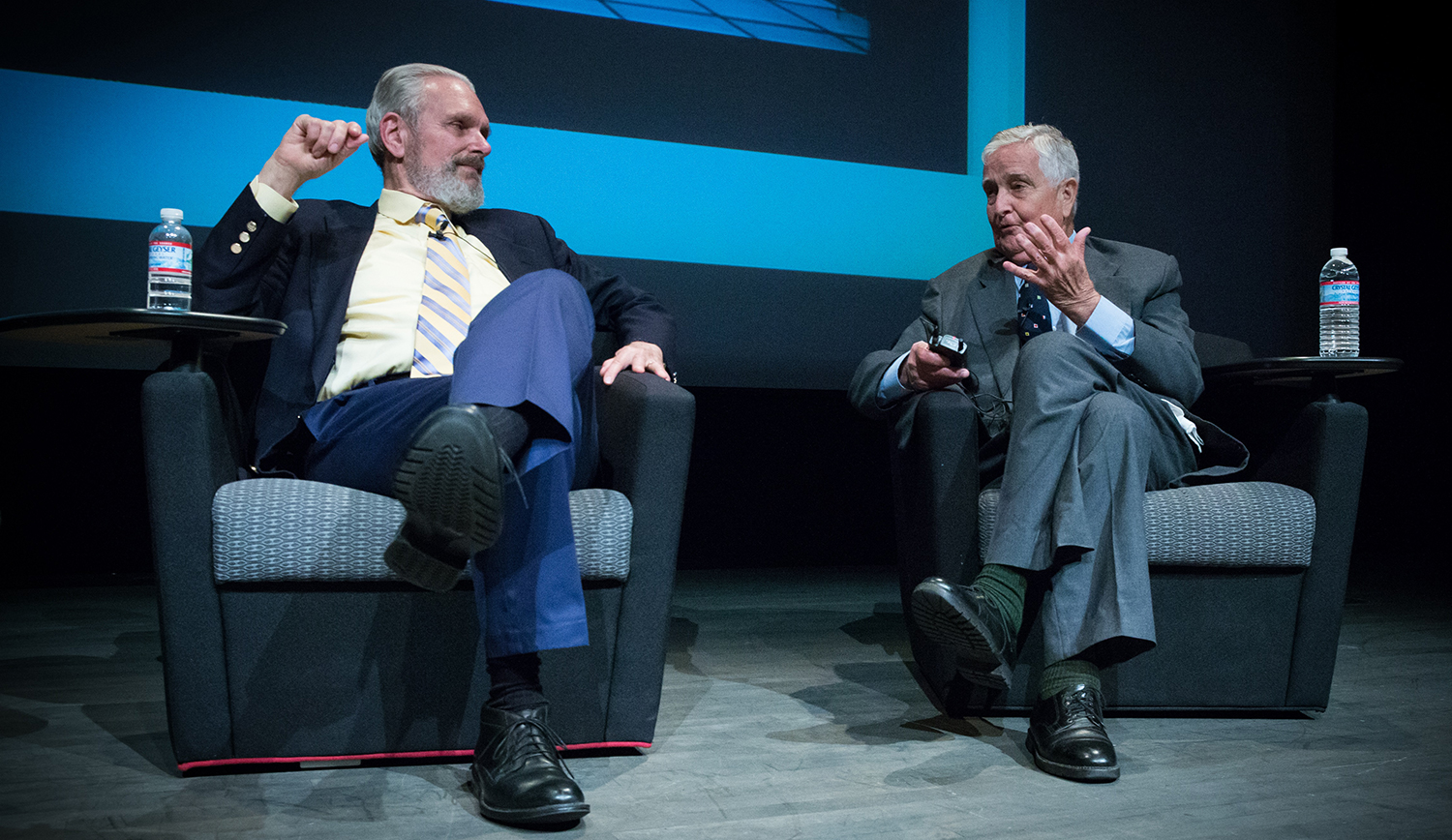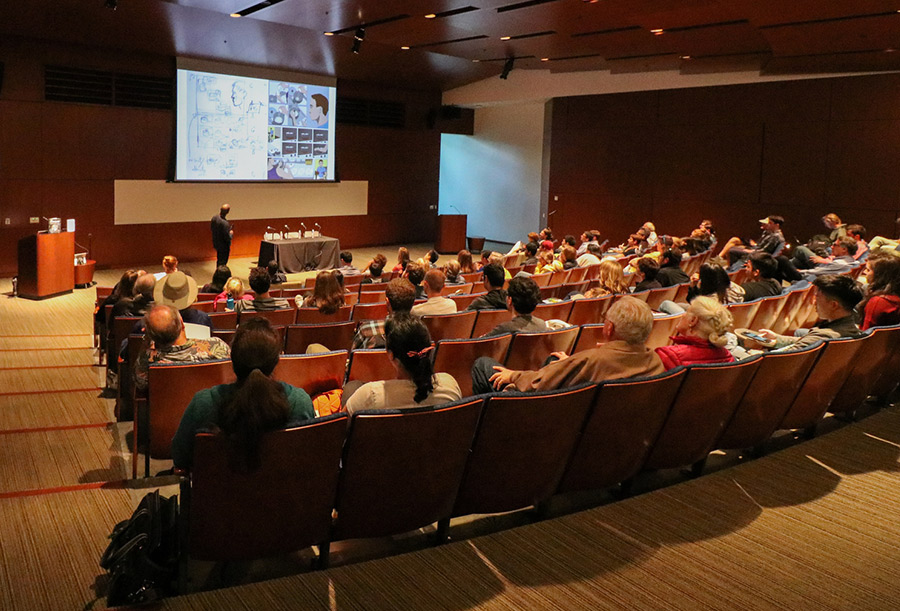UC San Diego Partners with Warner Bros. to Celebrate Iconic Film at Comic-Con
Arthur C. Clarke Center for Human Imagination honors “2001: A Space Odyssey,” reports film’s new 70 mm prints
By:
- Patrick Coleman
Published Date
By:
- Patrick Coleman
Share This:
Article Content

At the Clarke Center’s 2014 screening of “2001: A Space Odyssey,” actor Keir Dullea (left) and the film’s science advisor Fred Ordway III (right) discuss their roles in the film. Photo courtesy of the Clarke Center
Fifty years ago, the film “2001: A Space Odyssey,” directed by Stanley Kubrick, who co-wrote it with futurist Arthur C. Clarke, changed the world. The groundbreaking cinematic revolution offered a visionary view of the future and of humankind’s place in the cosmos. The film inspired numerous changes in science, technology and art—demonstrating the lasting impact of its ingenuity and artistry.

A captivated crowd listens and looks on during “Graphic Science: Comics Engage the Cosmos,” an event recently hosted by the Clarke Center at UC San Diego. Photo by Michelle Fredricks
Integrating the sciences, arts, humanities, engineering and medicine to explore humankind’s intellectual and creative capacities, the Arthur C. Clarke Center for Human Imagination at UC San Diego, in partnership with Warner Bros. Home Entertainment, organized a panel of speakers to address the film’s half-century impact and how it continues to shape human innovation. The panelists will also draw attention to new 70 mm prints made from the film’s original negatives to be released in October 2018. The Comic-Con program takes place July 19, 2018, from 12:30 to 1:30 p.m., at the San Diego Convention Center, Room 6A and features the following discussants:
- The two lead actors from “2001: A Space Odyssey,” Keir Dullea (“Dave”) and Gary Lockwood (“Frank”);
- UC San Diego’s Clarke Center Director and Professor of Visual Arts Sheldon Brown and Erik Viirre, associate director and professor at the university’s School of Medicine;
- Director of UC San Diego’s Healthcare Robotics Lab and Professor of Computer Science and Engineering Laurel Riek;
- Wu Yan, leading scholar of Chinese science fiction and professor at Southern University of Science and Technology, Shenzen, China;
- Shelley Streeby, UC San Diego professor of literature and ethnic studies, science fiction scholar and director of the Clarion Science Fiction and Fantasy Writers’ Workshop at the Clarke Center;
- David Brin, UC San Diego alumnus (MS, ’78; PhD, ’81) and Hugo and Nebula Award-winning science fiction writer;
- Matt Grob, chief technology officer, XCOM Corporation; and
- Paul Jacobs, chief executive officer and founder of XCOM.
“2001: A Space Odyssey is one of the defining cultural icons of the 20th century, and we are honored not only to continue its spirit here at the Clarke Center, but to celebrate its 50th anniversary at San Diego Comic-Con,” said Brown.
The notable film inspired a generation of students to explore astrophysics, space sciences and engineering—popular STEM programs in UC San Diego’s Division of Physical Sciences and Jacobs School of Engineering. It also predicted devices nearly identical to the iPad. Perhaps most famously, it established a cultural legacy for the future of artificial intelligence (AI) in the form of the placid-voiced shipboard computer HAL 9000. Its influence on science-fiction storytelling in film, television, books and videogames has been similarly wide-reaching and profound. HBO’s “Westworld,” for example, continues to explore the potential consequences of AI robots in the footsteps of Kubrick and Clarke’s seminal film.
At UC San Diego, we prefer the path less traveled. And it has led us to remarkable new ways of seeing and making a difference in the world.
Share This:
You May Also Like
Stay in the Know
Keep up with all the latest from UC San Diego. Subscribe to the newsletter today.



